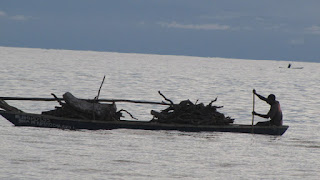It is Monday, winds are so
strong across the British Isles that we have been advised not to travel unless
very unnecessary.
I am quickly rushing across shops ready for
Christmas, two days away. As I speed around, violent gales are blowing
umbrellas off people’s hands. I watch an elderly woman battling with the
gadget- a classic argument with nature.
Umbrella says: “Let me
protect her. I cost her money, you know. I am expensive.”
Wind replies: “You can’t.
I am strong. I am the universe.”
Umbrella protests: “Have
you nothing else to do? Why don’t you go to the distant valleys where you
belong? What are you doing in our cities?”
Wind blasts harder; making
noises, offering a cruel and distasteful expression.
The hand of the woman
tries desperately to hold on to the plastic handle of the umbrella. The upper
part of the rain shield cannot resist the power of the brutal teeth of air and
tearing gusts.
Woman fails to walk with such
challenging gusts. She lets go. Umbrella falls off her hands, wind dashes off
victorious, looking for another victim.





































